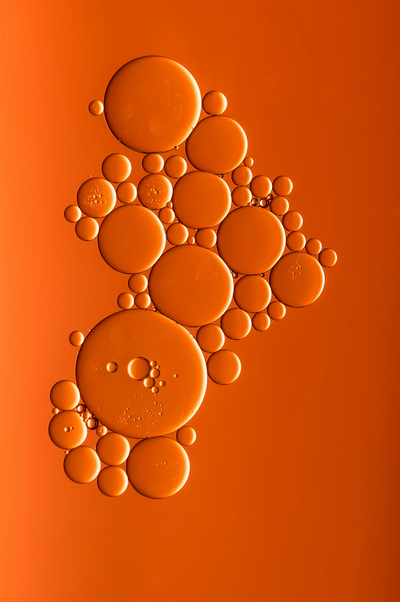Digestive enzymes are proteins that accelerate chemical reactions and act throughout our digestive tract "like scissors"; they break down food into smaller molecules and transform it from a solid to a liquid state to aid in its digestion by the intestine. A deficiency in digestive enzymes is a major cause of digestive and intestinal discomfort.
How do enzymes work?
Enzymes are proteins made up of amino acids that have a catalytic capacity: they accelerate chemical reactions.
Enzymes make it possible to hydrolyze or transform and properly assimilate complex molecules, food, into simple molecules, nutrients.
Each food group corresponds to a family of enzymes that contribute to the breakdown, transformation, and specific assimilation of that food category:
- Alpha-amylase transforms carbohydrates, starch or sugars into glucose
- Protease breaks down proteins into amino acids
- Lactase enables the digestion of lactose; often, it would be more accurate to speak of lactase deficiency rather than lactose intolerance.
- Lipase converts lipids into fatty acids
- Cellulase contributes to the digestion of cellulose or plant fibers.
- Alpha galactosidase is involved in the digestion of cruciferous vegetables
Where do enzymes come from? What are their sources?
Enzymes are naturally synthesized by the body throughout the digestive tract:
- The salivary glands
- The pancreas
- The stomach
- The intestine.
Only cellulase is an enzyme not produced by the body, yet it promotes intestinal transit.
What are the causes of an enzyme deficiency?
Several reasons could explain this:
Several reasons can explain an enzyme deficiency:
- Digestive disorders or pathologies that prevent the organs from properly producing and activating digestive enzymes.
- Meals that are too heavy, too rich, or too copious can overwhelm the body's natural enzyme production, a phenomenon also known as enzyme system saturation.
- The mealtime context that hinders enzyme activity: when eating too quickly, chewing is insufficient. Food then arrives in the stomach in pieces that are too large, making the work of the enzymes more difficult.
- Aging: enzyme secretion decreases with age
- The consumption of stimulants (medications, alcohol)
What are the symptoms of an enzyme deficiency?
Gas, bloating, and digestive problems after meals are the main signs of an enzyme deficiency or low activity.
Poorly broken down by enzymes, food reaches the intestine, which is then unable to assimilate it properly, where it ends up stagnating and fermenting, causing many digestive problems, including our lovely gas.
Reduced enzyme activity may also explain certain food intolerances such as lactose intolerance.
Indeed, lactase's role is to break down and allow the digestion of lactose. With age, some people no longer produce enough lactase enzymes and develop lactose intolerance. While our initial reaction might be to demonize lactose and the dairy products that contain it, the problem actually lies within our digestive system and our enzymatic activity, which are no longer able to digest it.
How to improve enzyme production?
Enzyme supplementation helps to stimulate enzymatic activity and digest foods that our digestive system sometimes struggles to process.
However, this is a temporary effect and linked to intake; food supplements do not allow for the correction of the enzyme deficiency in the long term; the enzymes provided as a supplement do not colonize the body.
To regulate enzymatic activity in a sustainable way, a suitable lifestyle is required:
- A varied and balanced diet
- Remove disruptive individuals as much as possible.
- Management of any potential digestive pathologies
Article written by Ginette and Josiane, an online support platform dedicated to Irritable Bowel Syndrome.
After 15 years of friendship and 10 years of navigating the challenges of managing Irritable Bowel Syndrome (IBS), including unusual experiences, tests, and daily discussions, Audrey and Audrey, two childhood friends both living with IBS, decided to combine their professional and personal journeys and their daily struggles to launch Ginette et Josiane, a true coaching program for living better with IBS and digestive disorders in general. Their ambition? To offer concrete solutions and, above all, to unite patients and healthcare professionals within a single community to raise awareness about this condition and establish it as a genuine movement.
Do you want to learn more about how enzymes work?
Watch the video of Audrey and Audrey, the founders of Ginette and Josiane > https://www.youtube.com/watch?v=6IIc6LSRDBQ&feature=youtu.be







































